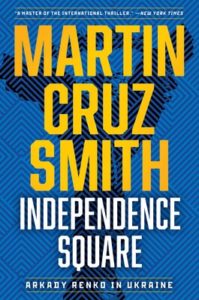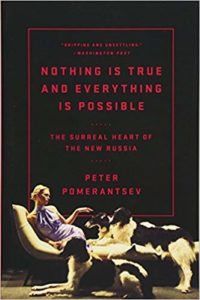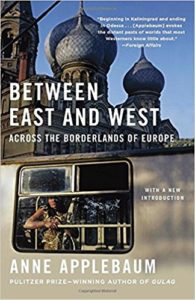Though it’s set in Moscow, Kiev, and Crimea just before the Russian invasion of Ukraine, Independence Square doesn’t have the epic sweep of The Siberian Dilemma or the rich cultural insights of Tatiana.
What this novel does have is a very classic, very clever mystery with some terrific misdirection, well-placed clues, and a killer who is, as you’d expect, the least likely person to have been a murderer.
In this tenth book of the series, Renko is struggling with the early onset of Parkinson’s which gives him balance issues and hallucinations, details apparently drawn from the author’s own experience of the disease.
Parkinson’s seems to have dulled Renko’s sarcasm about Russia’s cruel absurdities as well as his ability to describe scenes and settings in colorful detail. However, the book moves quickly and Vladimir Putin is the terrifying menace that hovers over everyone in the book, whether innocent or corrupt.
Renko finds himself investigating two murders after having been stuck by his oafish, vindictive boss doing paperwork at a miserable little desk. Along the way, his investigation is complicated by brutal cops beating freedom-loving protestors, a horde of nationalistic bikers, a greedy politician, a gorgeous young woman who falls into bed with him, and his former lover, Tatiana.
Fans of the series will be pleased to see that his adopted son Zhenya is back, still hustling people over a chess board and that Renko is never smug in the way Sherlock Holmes can be. Reaching one more dead end, he wisely realizes that he “didn’t even know what he didn’t know”–and that scares him, as well it should.
The story is ripped from the headlines with crazed Russians talking about the sanctity of their nation supposedly endangered by Western democracy, Satanism, and homosexuals. Too bad that Independence Square skimps on color and texture; when it does plunge into deeper description it feels somewhat muddled. There’s a freakish set piece near the end where a crowd watches a sort of son et lumière show (with motorcycles!) about Russian history from the Bolshevik Revolution onward and it’s not always easy to visualize.
But that’s redeemed by a heroic effort of Renko’s which skillfully echos many classic edge-of-your-seat movie scenes that are set backstage. ★★★
The former crime fiction reviewer for The Detroit Free Press, Lev Raphael has read all of the previous Arkady Renko books at least twice, some of them three times.




